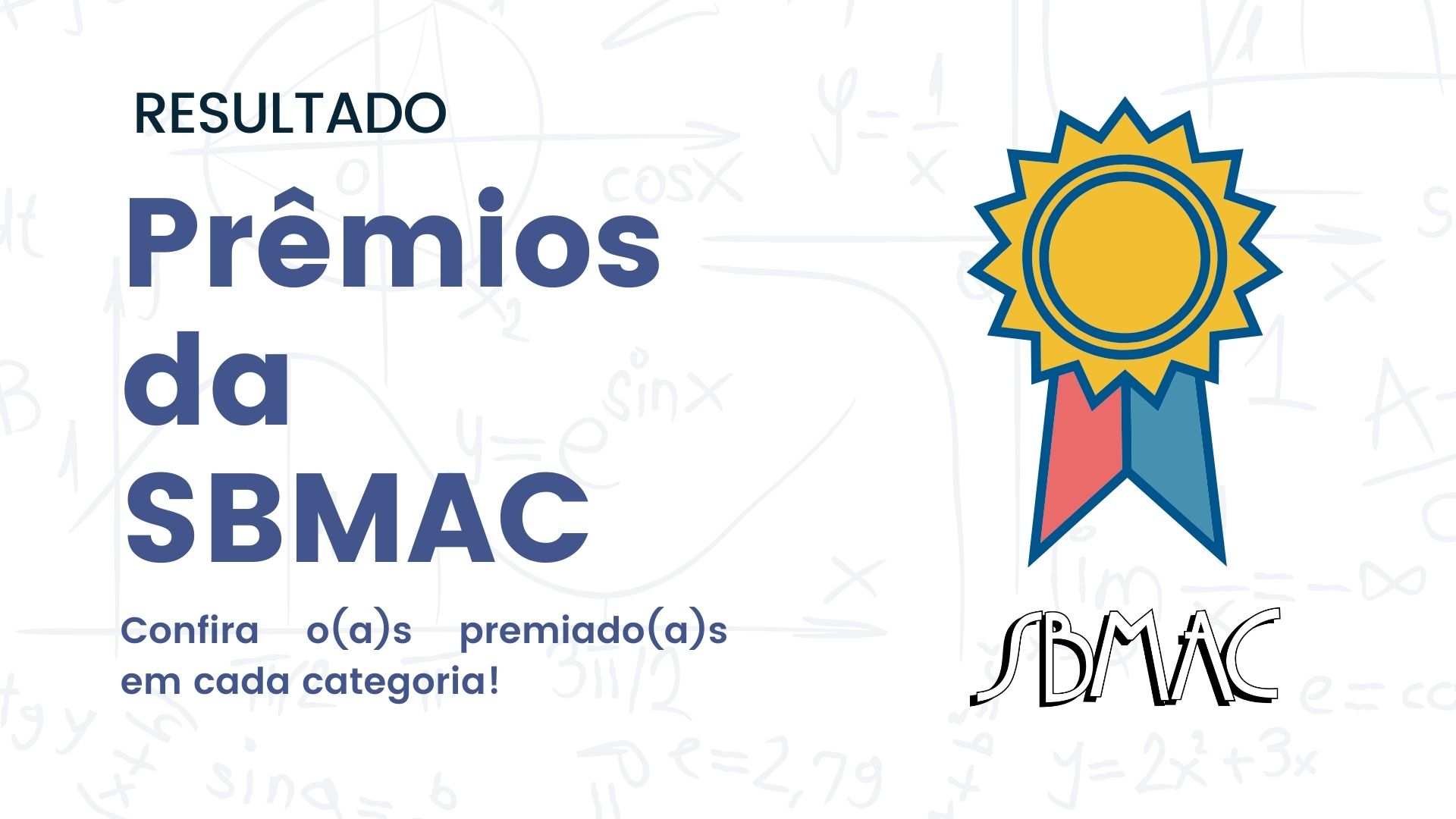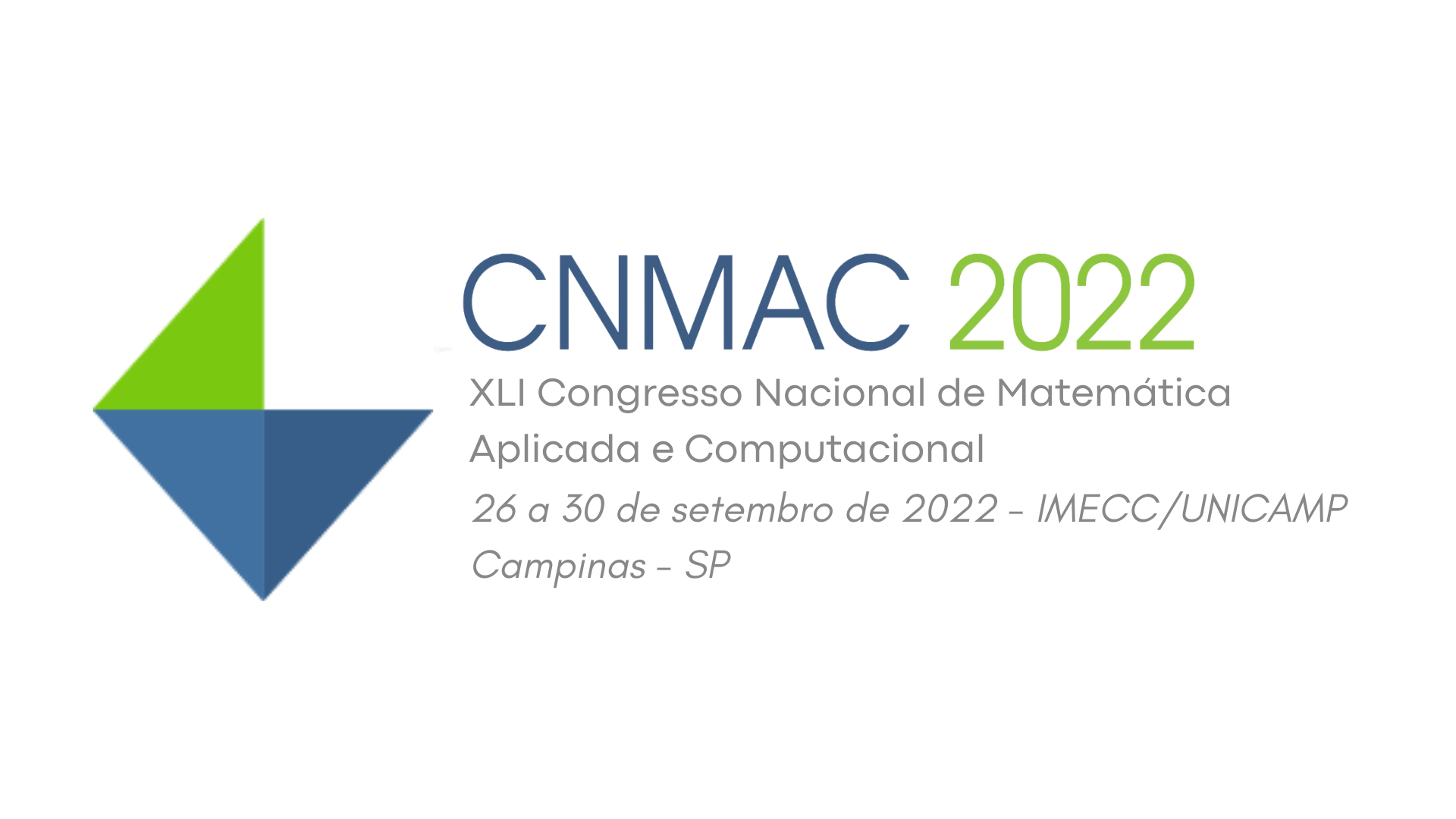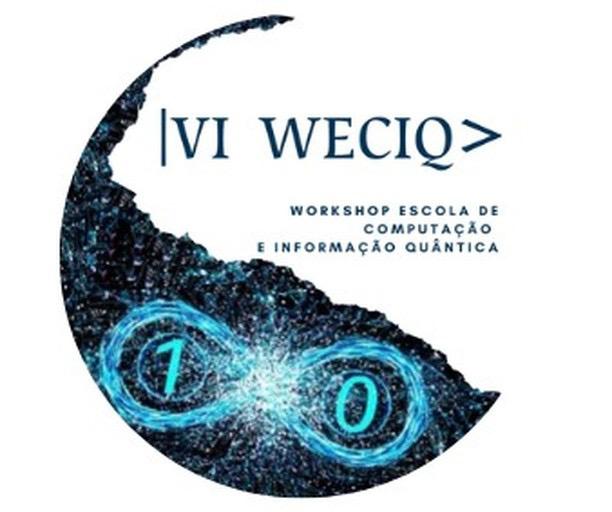
AVISOS IMPORTANTES DA SBMAC

1.1. A Sociedade Brasileira de Matemática Aplicada e Computacional (SBMAC) tem o prazer de anunciar os vencedores dos tradicionais prêmios nas categorias Iniciação Científica, Mestrado e Doutorado – cada uma em homenagem a uma grande personalidade da matemática brasileira.
Confira os premiados e mais informações

1.2. O Congresso Nacional de Matemática Aplicada e Computacional (CNMAC 2022) será realizado no formato presencial e virtual entre os dias 26 e 30 de setembro de 2022 na UNICAMP – Campinas – SP.
Confira os valores e faça sua inscrição no CNMAC 2022
1.3. A Sociedade Brasileira de Matemática Aplicada e Computacional (SBMAC) promove em suas Regionais os Encontros Regionais de Matemática Aplicada e Computacional (ERMAC). Após as edições de 2017 na UFRRJ (Seropédica-RJ), de 2018 na UFES (São Mateus-ES) e de 2021 (on line), a Regional 06, que corresponde aos Estados do Espírito Santo e Rio de Janeiro, está promovendo a edição 2022 a ser realizada entre os dias 19 e 21 de outubro de 2022 de forma presencial em São Mateus – ES, pelas instituições UFES e IFES.

EVENTOS
2.1. Estão abertas até o dia 21 de julho de 2022 as matrículas para os 14 WEBMinicursos da 74ª Reunião Anual da Sociedade Brasileira para o Progresso da Ciência (SBPC).
Com o tema “Ciência, independência e soberania nacional”, em alusão ao ano que marca o bicentenário da Independência do Brasil, o evento acontecerá de forma híbrida, com atividades virtuais e presenciais, nos quatro campi da Universidade de Brasília (UnB): Darcy Ribeiro, Ceilândia, Gama e Planaltina.
Todas as informações sobre as inscrições estão disponíveis no site da Reunião Anual: https://ra.sbpcnet.org.br/74RA/.
Os interessados poderão se inscrever em até cinco minicursos.
Veja aqui a lista completa dos WEBMinicursos: https://reunioes.sbpcnet.org.br/74RA/lista_mc.php
2.2. O III Workshop de Otimização será realizado entre os dias 1 e 2 de agosto de 2022. O evento é realizado pelo grupo de otimização vinculado ao programa de pós graduação em Biometria, do Instituto de Biociências de Botucatu (IBB/UNESP).
As inscrições devem ser realizadas até dia 28 de julho de 2022, não serão realizadas no dia do evento. O evento será presencial, com palestra internacional e o minicurso ministrado de forma remota.
Mais informações: https://www.even3.com.br/iiiworkshopdeotimizacao_2022/
2.3. O XII Congresso Latino Americano de Biologia Matemática será realizado entre os dias 7 e 11 de novembro de 2022 no formato online. As inscrições para propostas de Minissimpósios, Mesas Redondas e Minicurso encerram-se no dia 30 de julho de 2022 e devem ser enviadas através do link: https://servicedesk.unesp.br/s/pe/417.
Mais informações: https://www.even3.com.br/solabima2022/
2.4. O evento 5th Brazil Interpore Chapter será realizado entre os dias 1º e 2 de agosto de 2022. A edição deste ano acontecerá na modalidade virtual.
Mais informações: https://interpore2022br.ufrn.br/

2.5. O VI Workshop Escola de Computação e Informação Quântica (WECIQ 2022) será realizado entre os dias 10 e 12 de agosto de 2022 na Universidade Federal de Alfenas – UNIFAL-MG. Importante evento nacional que contará com a participação de ministrantes, palestrantes nacionais e internacionais. O WECIQ contempla as áreas de Computação e Informação Quântica, Segurança em Comunicação Quântica, Redes Quânticas, Eletrônica e Programação para Computação e Informação Quântica. O evento visa reunir pesquisadores, professores, alunos de graduação e pós-graduação (Computação, Engenharia Elétrica, Física, Matemática, etc.), profissionais que atuam nestas áreas e demais interessados na compreensão da utilização da Mecânica Quântica na computação, comunicação e segurança computacional, bancos, empresas, etc.
Mais informações: https://www.unifal-mg.edu.br/
2.6. O Workshop Mathematical Biology in Springtime at 29S53W (MBS29S53W) será realizado entre os dias 5 e 7 de outubro de 2022 na UFSM em Santa Maria, RS.
Faz parte do projeto de internacionalização da Pós-Graduação do Rio Grande do Sul coordenado pelo Grupo de Biomatemática da UFSM e financiado pela FAPERGS.
É destinado a alunos(as) de Graduação, Pós-Graduação e professores/pesquisadores. O principal objetivo do MBS29S53W é discutir as novas tendências da pesquisa na área, ampliar os laços de colaboração entre diferentes grupos de pesquisa e encorajar alunos(as) de pós-graduação a desenvolver estágios no exterior.
Mais informações: https://sites.google.com/view/mbspringtime2022/ e https://www.instagram.com/p/CfHsAr8pHTv/?igshid=MDJmNzVkMjY=
2.7. O XXV Encontro Nacional de Modelagem Computacional (XXV ENMC), XIII Encontro de Ciência e Tecnologia de Materiais (XIII ECTM), 9º MCSul e o IX SEMENGO, evento conjunto, serão realizados entre os dias 19, 20 e 21 de outubro de 2022, de forma totalmente online.
A submissão de trabalhos completos (entre 5 e 10 páginas) encerra-se no dia 15 de agosto de 2022. Informamos que, ao final do evento, trabalhos serão selecionados para serem publicados em diferentes periódicos nacionais e internacionais. Veja a lista de periódicos em: http://enmc.ccam.uesc.br/artigos.php.
Mais informações: http://enmc.ccam.uesc.br/index.php
2.8. O XVI Encontro Acadêmico de Modelagem Computacional (EAMC) será realizado entre os dias 14 e 17 de fevereiro de 2023. O EAMC é um evento organizado anualmente por discentes do LNCC e de outras instituições parceiras.
É dedicado à Modelagem Computacional, abrangendo os seguintes temas: Computação Científica, Controle e Filtragem de Sistemas Dinâmicos, Modelagem de Biossistemas e Bioinformática, Modelagem de Circulação e Transporte, Modelagem de Equilíbrio e Otimização e, mais recentemente, Ciência de Dados e áreas correlatas, como Inteligência Artificial. O prazo para submissão de trabalhos encerra-se no dia 31 de outubro de 2022.
Mais informações: eamc.lncc.br

OPORTUNIDADES
3.1. Postdoctoral Researcher– Waterfowl Distribution, Spatial Modeling, Avian Influenza Virus
The University of Maryland in collaboration with the USGS Eastern Ecological Science Center (formerly Patuxent Wildlife Research Center) is searching for a highly motivated and talented individual to work as a postdoctoral researcher on projects focused on analyzing movement data from wild birds, developing distribution models for waterfowl, and modeling the risk of highly pathogenic avian influenza transmission at the wild waterfowl-domestic poultry interface. This position will be dual-based at (1) EESC, a world-renowned facility that serves as one of the leaders in North American avian research located in Laurel, MD within 30 minutes of Washington D.C., and (2) University of Maryland in College Park, MD. The two stations are located within 15 min of each other.
Project description: This position will focus on multiple spatial modeling projects including development and comparison of waterfowl distribution models using varying datasets, development of spatial inputs for disease modeling, and advancement of avian influenza transmission modeling. Access to high-powered computing is available through the University of Maryland and USGS. The selected candidate will work directly with Dr. Diann Prosser (USGS) and Dr. Jennifer Mullinax (UMD), and in part with our professional collaborators across the country. In-lab interactions include other post-docs, long-term research technicians, graduate students, and interns. The post-doc will also have the opportunity to work with current students in a mentoring capacity, should they choose. Analyses and development of peer-reviewed journal articles are expected products. The selected applicant will be contributing to a long-standing partnership with USDA collaborators that has yielded numerous peer-reviewed publications and high value science actively used during current outbreak events.
Required expertise/skills: The ideal candidate has a doctoral degree in Ecology, Wildlife Biology, Natural Resources, GIS, Statistics, Quantitative Analysis, Mathematics, or a related field. It is critical that the selected candidate have extensive experience in R or other related statistical software and be proficient in handling various forms of autocorrelation, particularly spatial and temporal. Experience with Bayesian analysis, large spatial datasets, wildlife disease, or avian ecology is a strong plus. Ability to write peer-reviewed manuscripts is a requirement. The candidate must be highly motivated, able to work independently, and good at communicating within a team.
Eligibility requirements: The selected candidate must successfully complete a criminal background check as required for access to government computers and properties.
Description of working conditions: Work will be performed predominately in the office environment located in Laurel, Maryland (EESC) and with 1-2 days per week at the University of Maryland, College Park. A telework option may be available for part of the week. The potential exists for occasional field work which may require transportation via midsized (20-40’) open boats. Extended periods of computer use will be required for this position.
Compensation: Compensation is commensurate with experience, and a full, competitive University of Maryland benefit package. Approximate start date for the position is July 2022 or as soon as filled. This position is funded for 12 months with potential for extension to 24 – 36 months.
How to apply: Send the following to pwrc_application@usgs.gov and wildlife@umd.edu no later than July 10th with “Modeling Postdoc” in the Subject header. Applications will be reviewed as received.
1) Letter of interest, CV with publication list, contact info for 3 references, and one peer-reviewed writing example in a SINGLE document titled with your name (eg. DoeJohn.doc or SmithJane.pdf).
3.2. Positions at the Mathematics Department, PUC-Rio
In the spirit of peace we invite mathematicians affected by war to join the Department of Mathematics of PUC-Rio (Rio de Janeiro, Brazil), to take up special chairs as professors or researchers. Currently we consider mathematicians affected by the war citizens of Belarus, Russia, Ukraine and those who recently worked in these countries. The positions are intended for academic researchers in mathematics. They are full time and fully paid, with an initial contract of three years.
Post-doctoral positions and grants are also available. Graduate students are welcome to apply for a grant to join our PhD and MSc programmes (http://www.mat.puc-rio.br/en/rdmission-and-regulation). Send a curriculum vitae, and list at least two researchers who will be sending recommendation letters, to <candidato-paz@mat.puc-rio.br>.
Candidates should also include information on their current situation and motivation in a cover letter. Students may apply online or write to <secpos-int@mat.puc-rio.br> and Prof. Sergey Galkin <sergey@puc-rio.br> for further enquiries. We expect to start evaluating proposals by July 15. For additional information, please contact Sergey Galkin <sergey@puc-rio.br> (Russian spoken) or our Department’s head Nicolau Saldanha <saldanha@pucrio.br>.
3.3. Call for Postdoctoral Research Positions- Inria Brasil
Every year the International Relations Department of Inria launches a recruitment campaign for Post-Doctoral positions in order to support Inria international collaborations. Inria Brasil is one of the priority cooperation programs for this year. The postdoc contract will have a duration of 12 to 24 months. The default start date is November 1st, 2022 and not later than January, 1st 2023. The Post-Doc will be recruited by one of the Inria centers in France but it is recommended that the time is shared between France and Brazil.
Eligibility criteria: Candidates for postdoctoral positions are recruited after the end of their PhD or after a first post-doctoral period: for the candidates who obtained their PhD in the Northern hemisphere, the date of the defence shall be later than 1 September 2020; in the Southern hemisphere, later than 1 April 2020. In order to encourage mobility, the post-doctorate must take place in a scientific environment that is truly different from that of the PhD (and, if applicable, from the job held since the PhD); particular attention is thus paid to French or international candidates who obtained their doctorate abroad.
How to apply: Applications for the Inria International Relations Department reserved post-docs must be submitted to postdoc-dri@inria.fr before July 15, 2022 with the following documents: Completed summary sheet to be downloaded here: https://project.inria.fr/inriabrasil/files/2022/06/Post-Doc-Application-Summary-Sheet-2022-1.pdf; Research project including subject title, research program, work plan and planned visits, duration (between 12 and 24 months) and the desired starting date (default start date is November 1st, 2022 and not later than January, 1st 2023); Detailed CV with a description of the PhD and a complete list of publications with the two most significant ones highlighted; Motivation letter from the candidate; 2 letters of recommendation; Letters of support from the host Inria research team and from the host international partner; Copy of passport.
List of topics: (to be updated) You have the possibility to send some research topics or short offers for Post-doc positions (to postdoc-dri@inria.fr). For more information: Feel free to contact postdoc-dri@inria.fr

